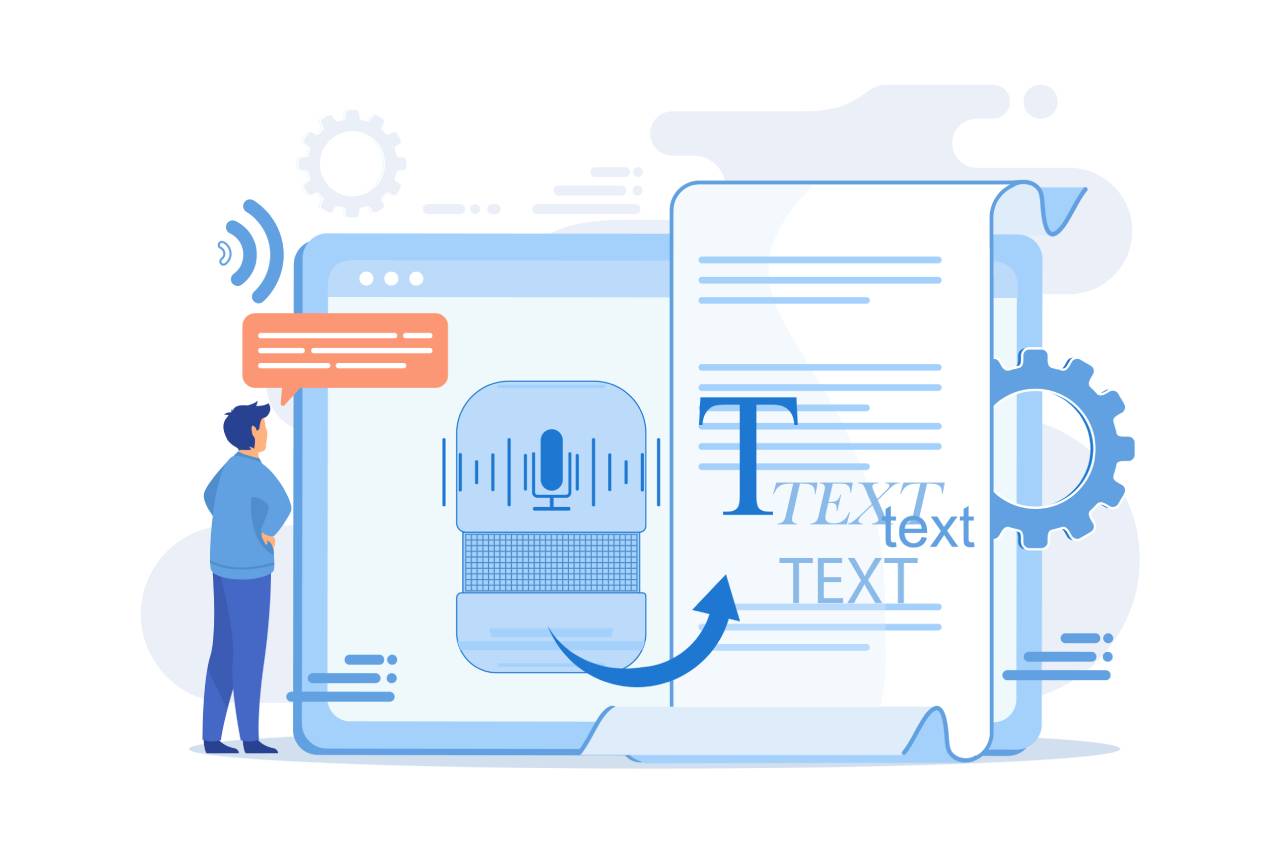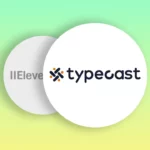Among various text-to-speech services, Google text-to-speech (TTS) is considered to be one of the most prominent and well-known.
Google’s TTS is powered by DeepMind, which is known to be the most sophisticated and robust AI algorithm.
It can be used to perform various tasks such as chat and voice-based customer services for global applications and google voice search on various Android applications.
Use cases and capabilities of Google text-to-speech
Google cloud TTS is capable to perform well for three main use cases such as mobile and IoT (Internet of things) applications, call centers, and audio media.
Google’s text-to-speech has persisted with having a very high rank in text-to-speech software with numerous strengths, however, those strengths also come with limitations.
There are a number of text-to-speech (TTS) applications and software that has more features and better-performing abilities than Google cloud TTS.
In this blog, we will present some of the top alternatives to Google TTS that would better serve in various cases.

Top 5 alternatives to Google text-to-speech
Below is the list of 5 best alternatives of the Google Cloud’s text-to-speech applications and tools.
1. Typecast
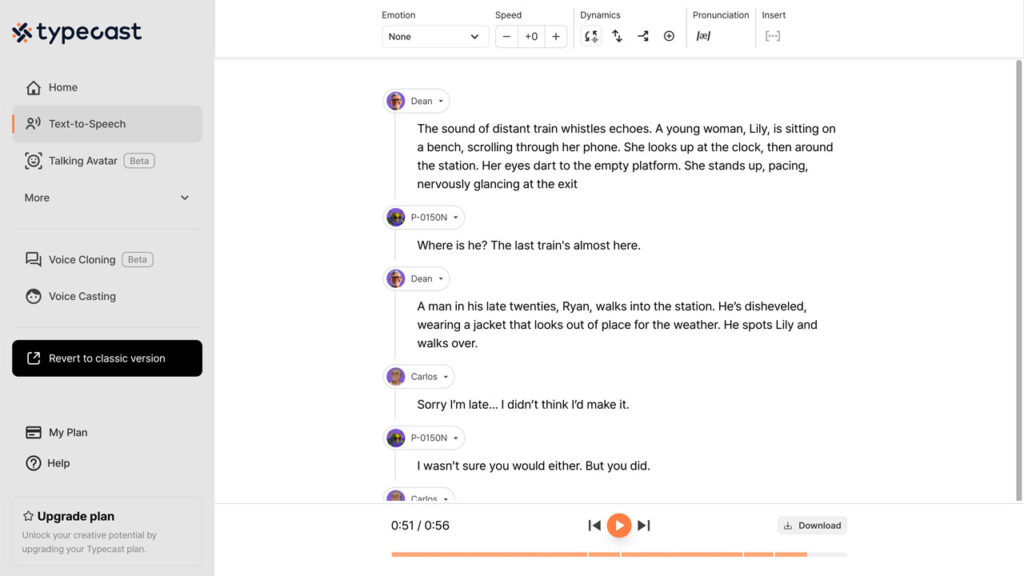
Typecast is an AI voice generator that utilizes text-to-speech technology to help creators build content easily through the use of virtual actors and customizations.
It is incredibly useful to create any kind of video which requires natural voice-overs and synthetic human characters.
You can even clone voices to get that exact voice you need.
Typecast, to put it simply, is a tool that can be used to generate voiceovers for numerous applications, such as audiobooks, podcasts, YouTube videos, and several other applications.
It can save your valuable time as it is simple and easy to use and does not require a complicated studio setting. You only need to type or copy-paste your written content.
It is known to be an intuitive voice generator having the AI feature of converting text to speech that sounds natural. The software provides an extensive library of more than 300 AI voices with different styles and tones.
The AI-generated voices of the typecast have the feature of replicating the nuances and subtleness of human voice while converting text to sound.
Typecast TTS software makes the content richer by controlling the emotions as well as tones while tailoring the narratives.
Typecast provides its customers the feature of controlling and managing the way the final voiceover would sound by adjusting the speed of the voice, varying the narration pitch, changing the length of the pauses, etc.
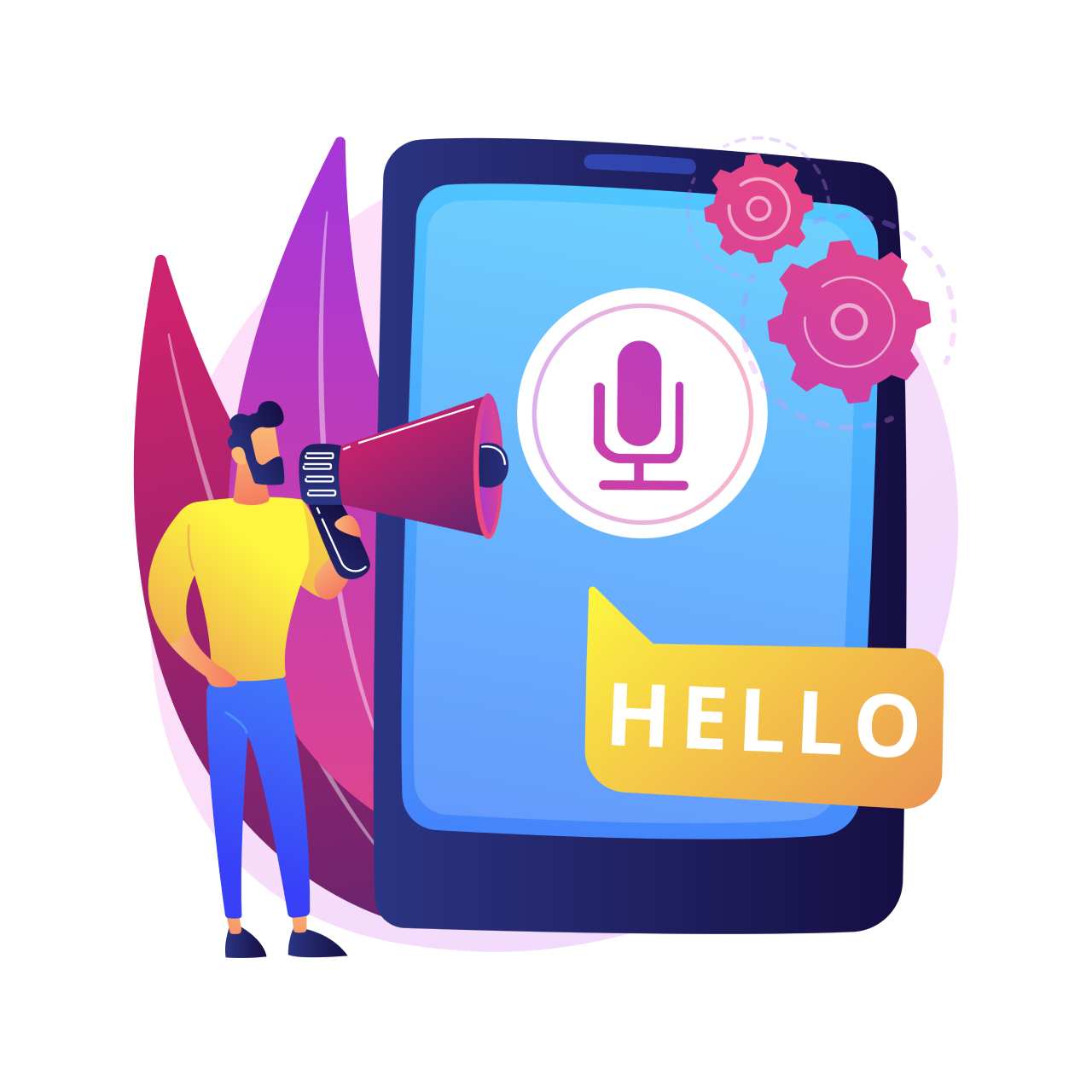
2. IBM Watson’s text-to-speech
Other than Google’s text-to-speech converter, IBM Watson TTS also serves the purpose fully, especially for the business community and content creators for converting their written text-to-speech.
It can then be used across numerous voice-driven apps from “voice-automating chatbots” to “speech-enabled tools” and software for the visually impaired or disabled to home solutions.
IBM Watson TTS has the feature of providing voiceover in 13 languages. For customizing the output of the speech on this text-to-speech converter, users are required to use the SSML tags.
This IBM Watson software offers APIs using the abilities of speech-synthesis of IBM for synthesizing the text into natural-sounding speech in different languages, voices as well as dialects.
In comparison to Google’s text-to-speech, IBM Watson’s TTS API is:
- Easier to set up.
- More user-friendly.
- Comes with a competitive customer service team.
3. Speechelo
Speechelo’s text-to-speech tool takes the text from that of the files and generates the speech that sounds natural. This TTS tool is available in various pricing options and numerous voice variants.
The best feature of this text-to-speech software is that it has the potential to automate manual steps, which makes it easier for the user to listen to the text rather than just reading it.
Even though this TTS tool has several limitations in context to some features, it has a shorter learning curve in comparison to other options.
In comparison to the Google Cloud text-to-speech, Speechelo’s TTS is considered to be faster to use and has many options, however, it does not possess the feature of customization like Google TTS.
4. Yepic Studio
Yepic Studio is another strong competitor of Google’s text-to-speech tool that uses advanced neural networks for providing speech service along with exceptional AI voices.
The software program generates the audio speech sound from the text in a few minutes. Yepic Studio can convert text to speech in 20+ languages.
This TTS software provides numerous backgrounds and formats that make it most desirable for those who make short videos and movies.
The best feature of Yepic’s text-to-speech is its ease and convenient user interface as a comparison to Google Cloud text-to-speech,
5. Synthesia
Synthesia’s text-to-speech is another popular alternative to the Google’s text-to-speech converter that comes with an AI presenter. However, this comes as more of an enterprise solution than anything else.
The key point is that the user is not required to build or make a separate voiceover. It is because the tool would automatically integrate the AI presenter giving it the ability to narrate the written text.
Synthesia TTS is comprised of various avatars, video editing tools, and features that can convert text to different languages.
Through this kind of text-to-speech converter, users can get the benefit of customizing all aspects of the video, therefore, this tool is considered to be most suitable for those who need to create video presentations.
Synthesia is considered to be one of the top alternatives to Google’s text-to-speech tool for its better working efficiency in the context of the corporate world, however, the tool is not well suitable for personal use.
Reasons to choose Typecast over Google’s text-to-speech converter
A text-to-speech tool such as Google’s TTS might not have all the features that are required by the user for creating multimedia content.
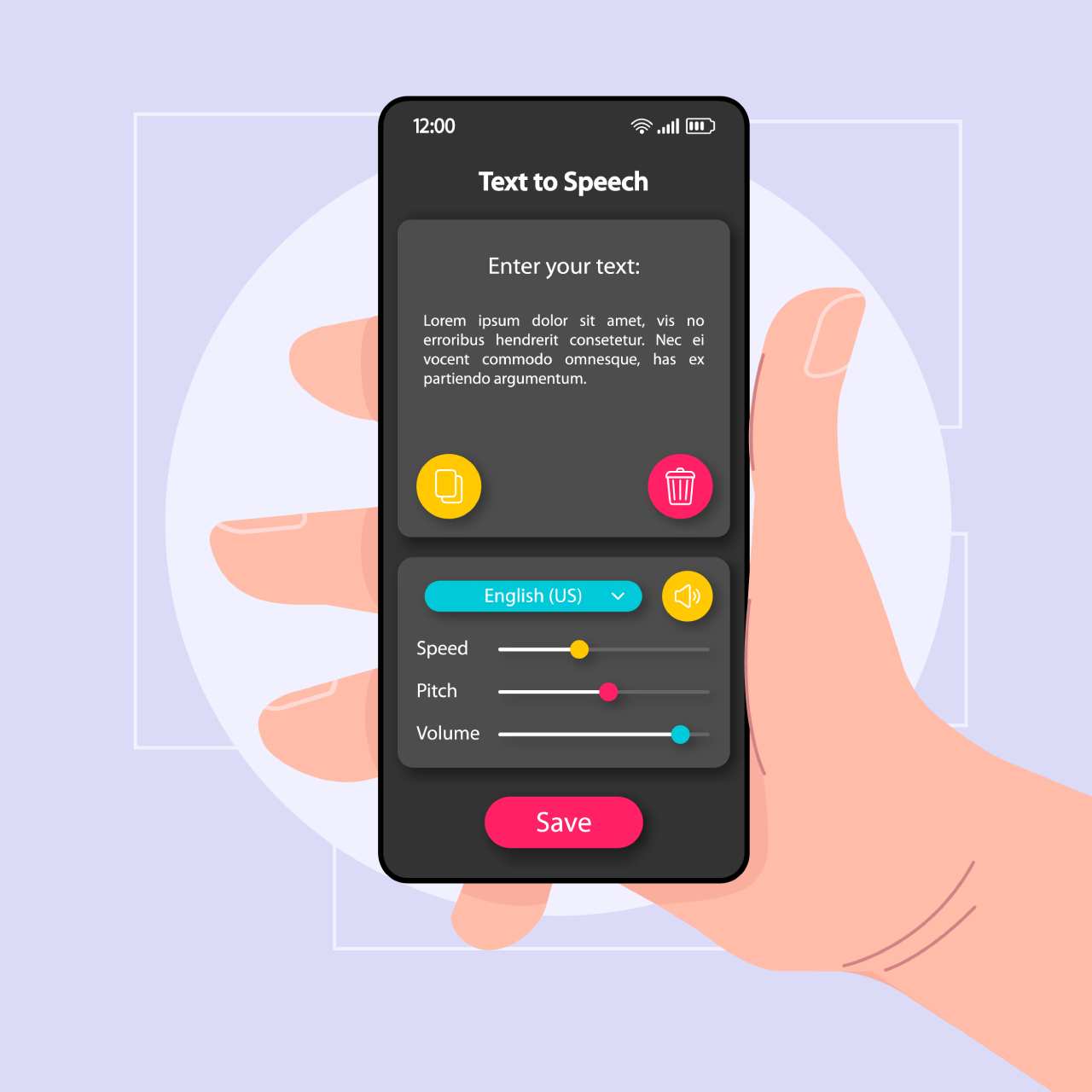
No requirement of screen recording
With Typecast TTS, a user is not required to hire actors. There comes no need to manage the film crews nor any sort of studio renting out needed.
No requirement of post-production
Post-production is considered to be a highly expensive and complex task to perform, Typecast’s text-to-speech provides the service of making the videos without requiring post-production.
No requirement to download
Unlike Google’s text-to-speech, there is no requirement of downloading typecast TTS tool. Users can use the program just by logging into it or signing up and start making videos in desirable ways.
